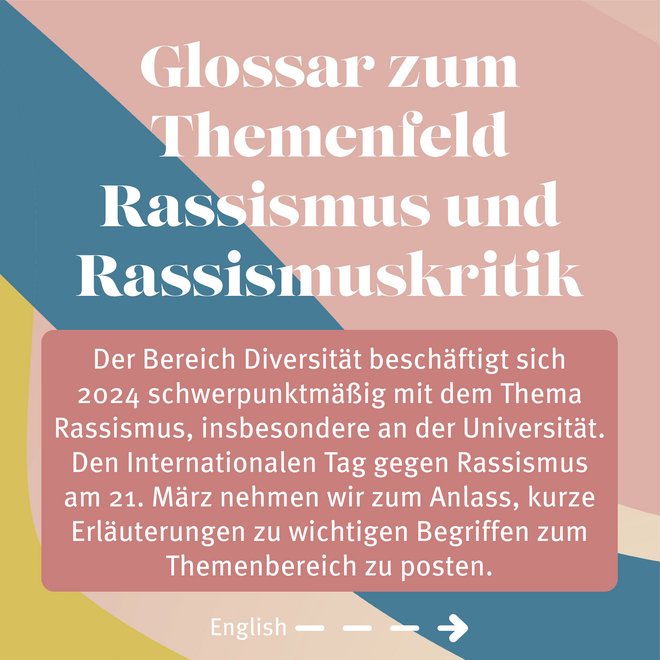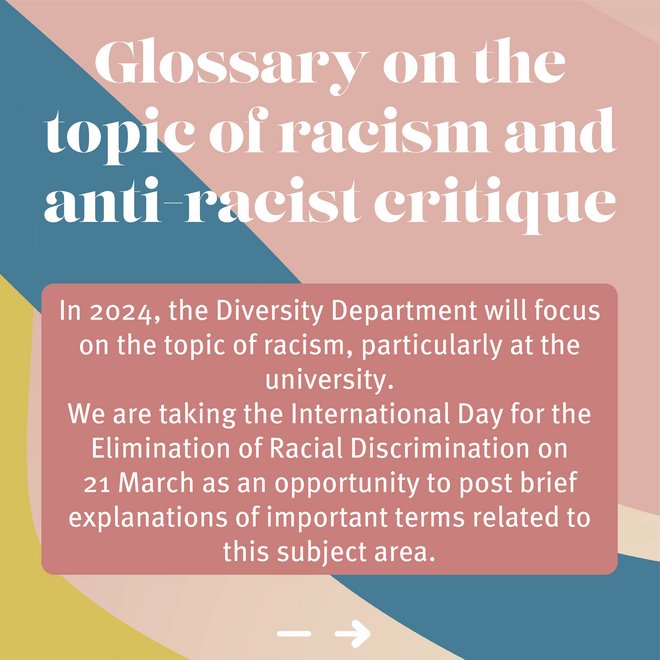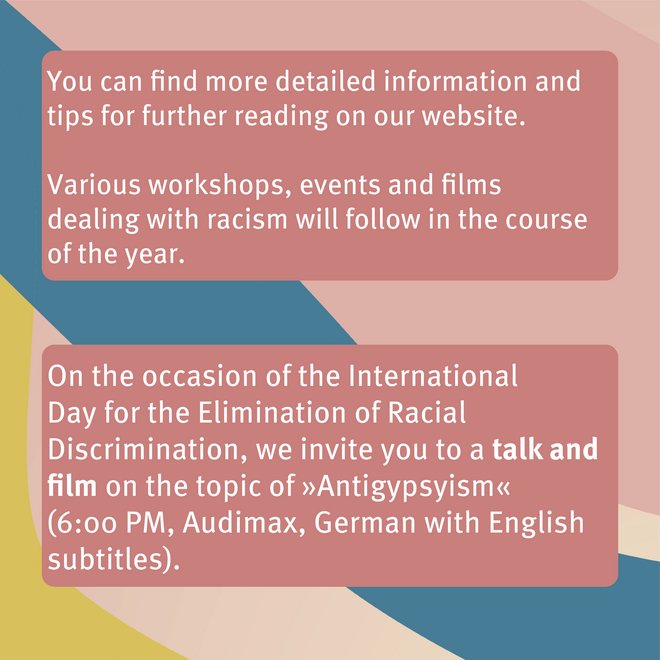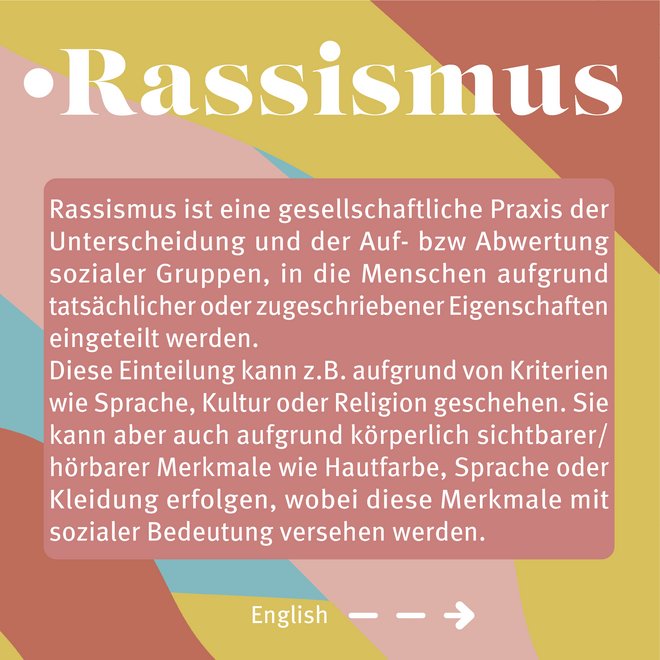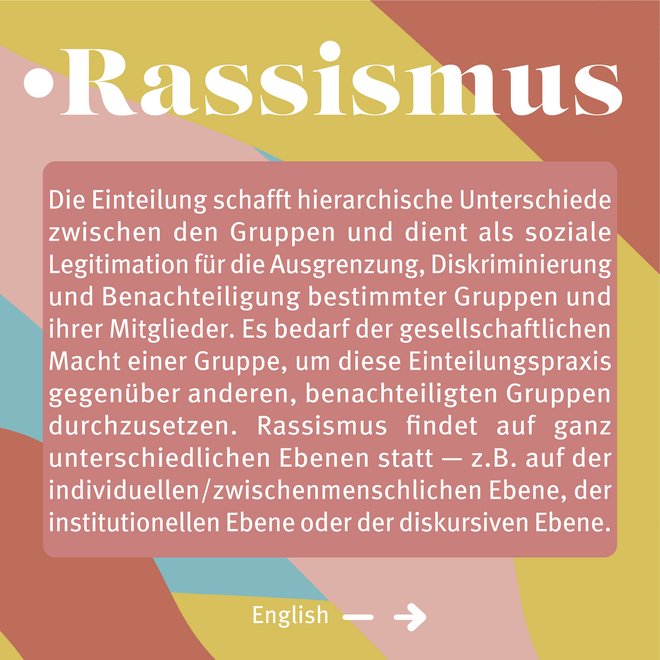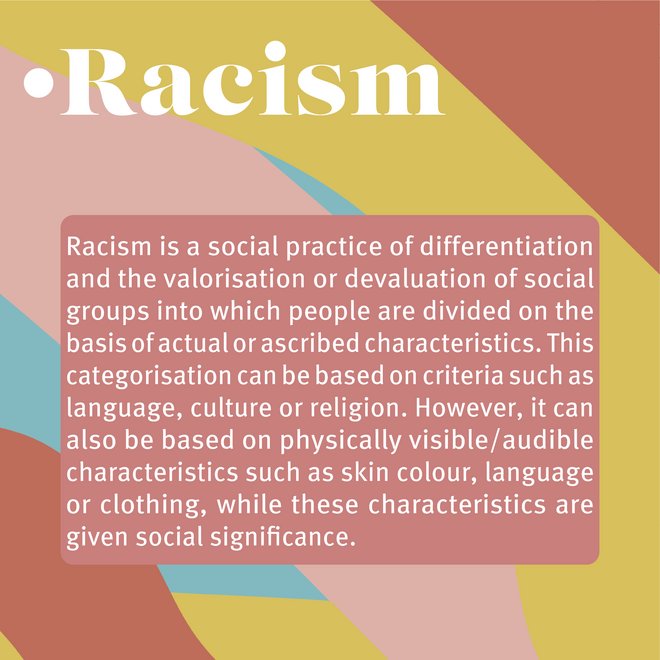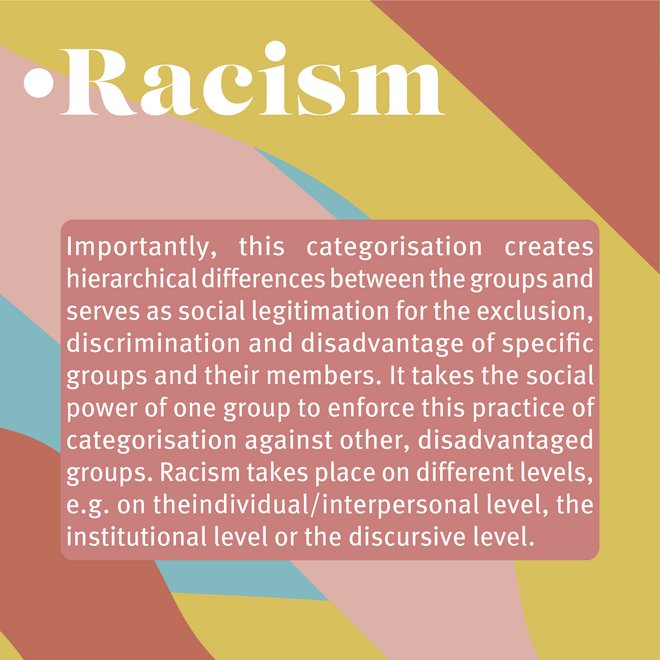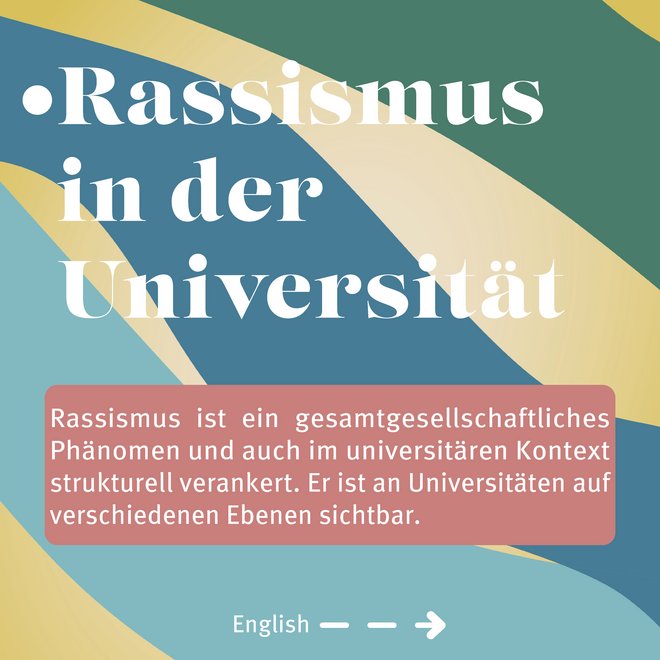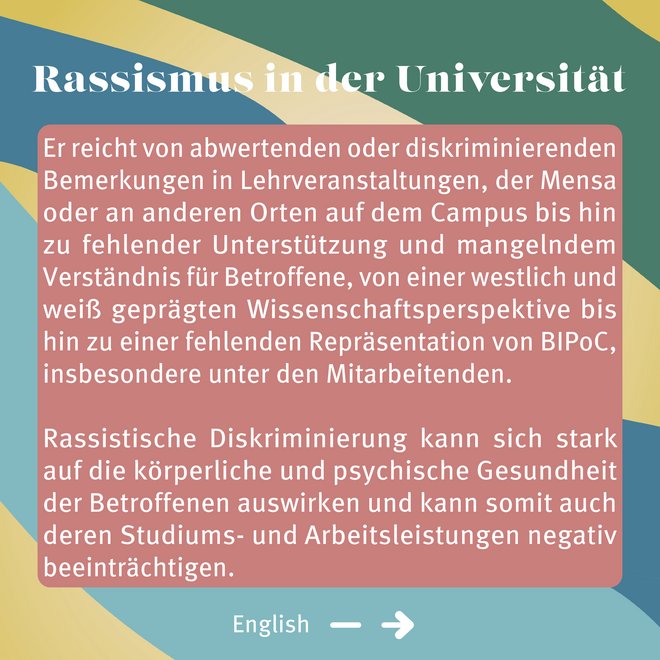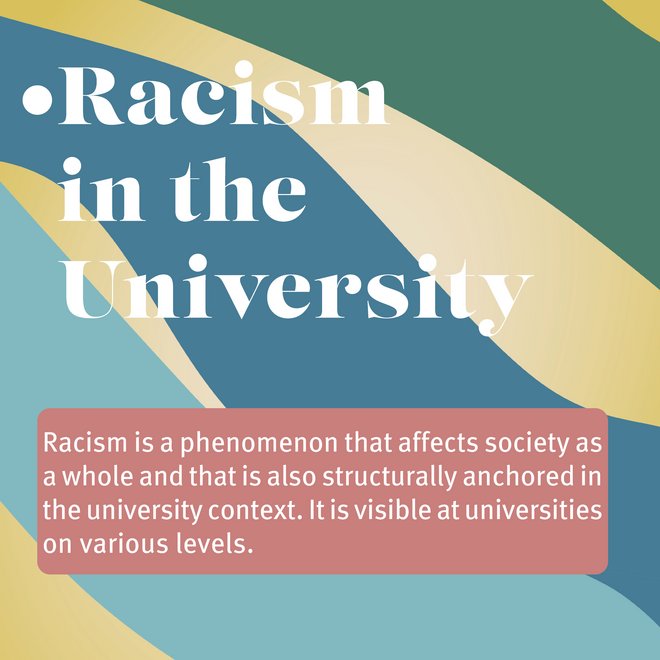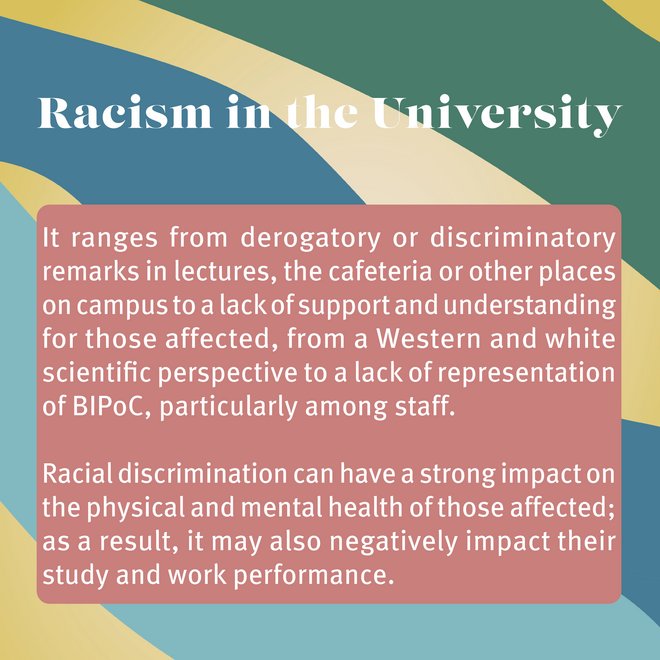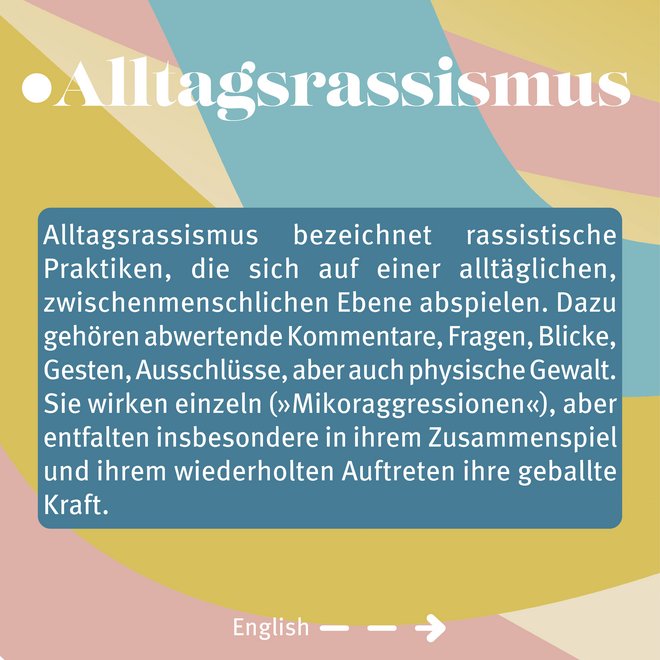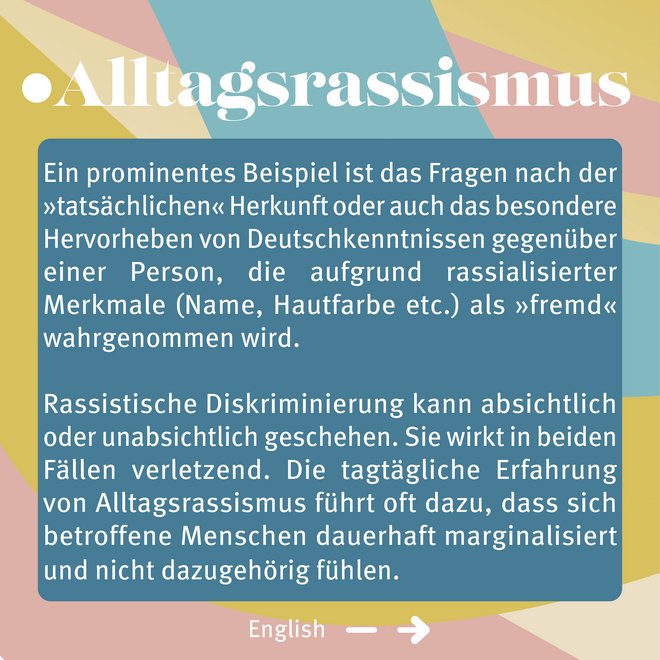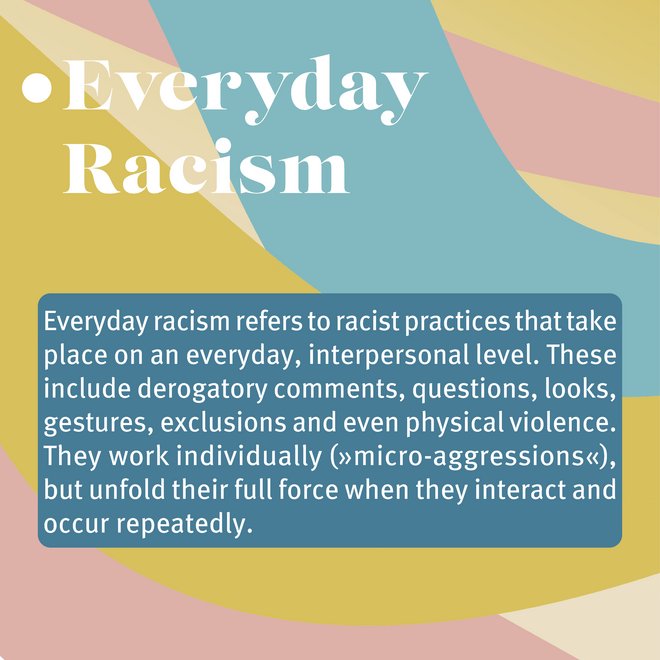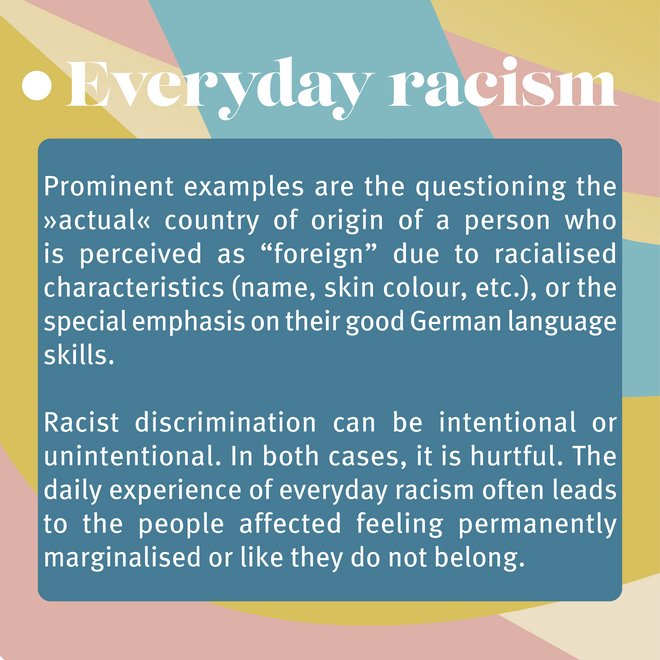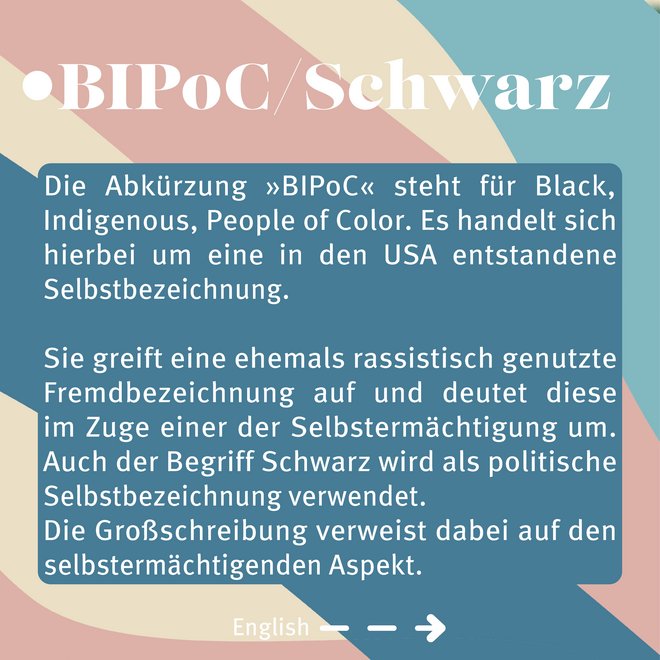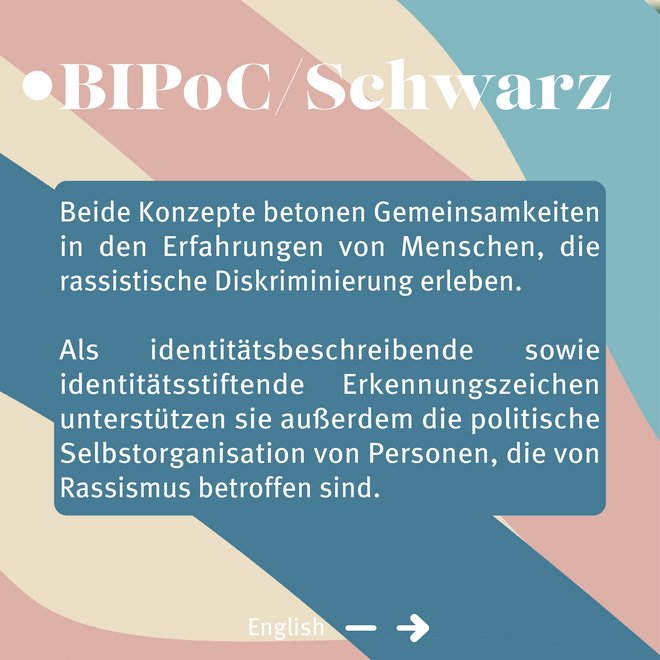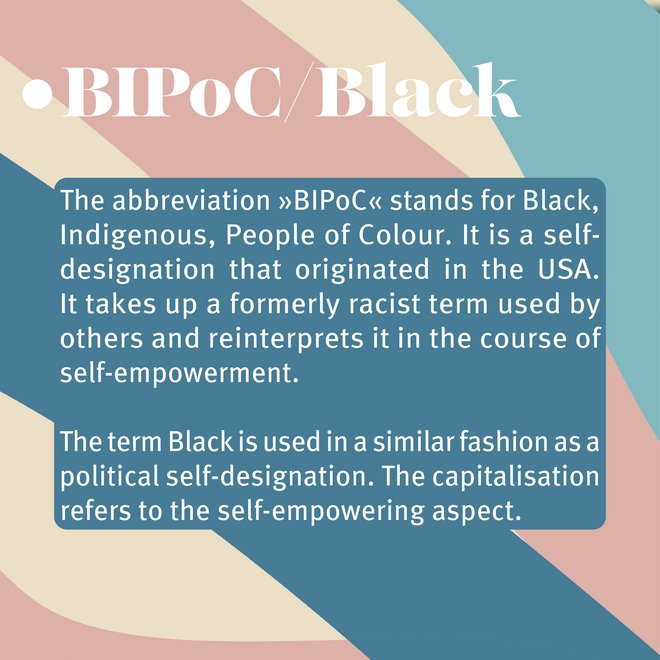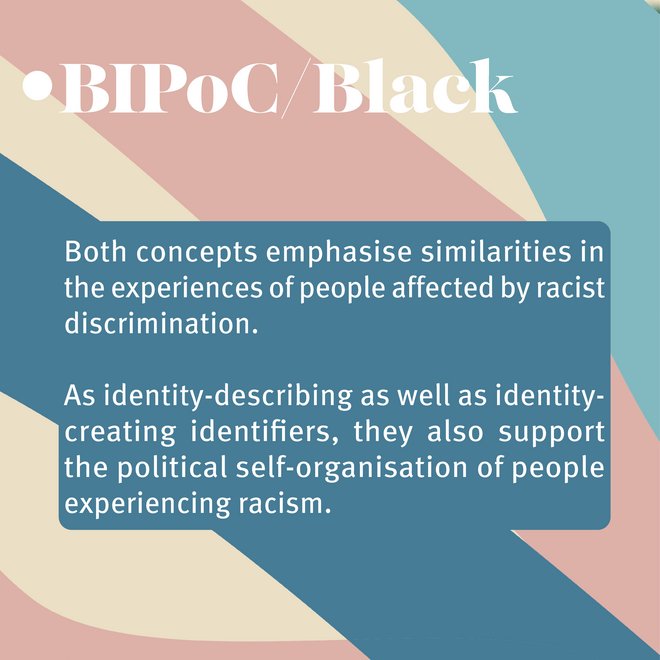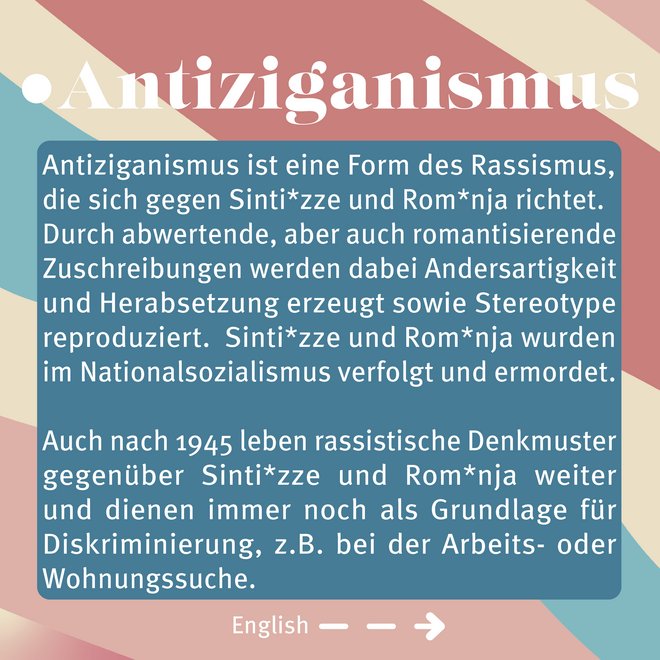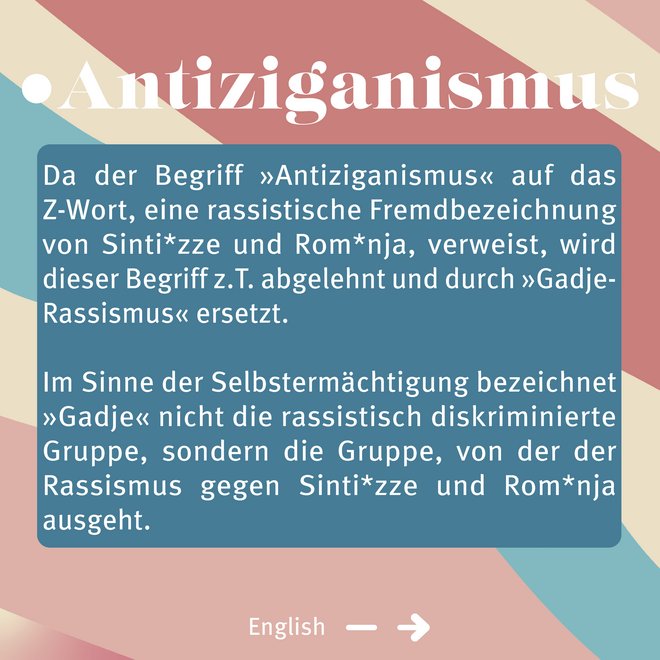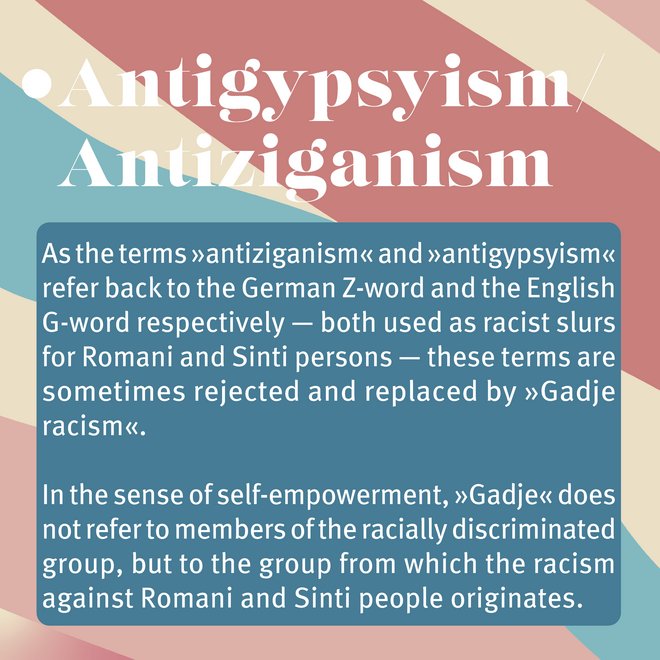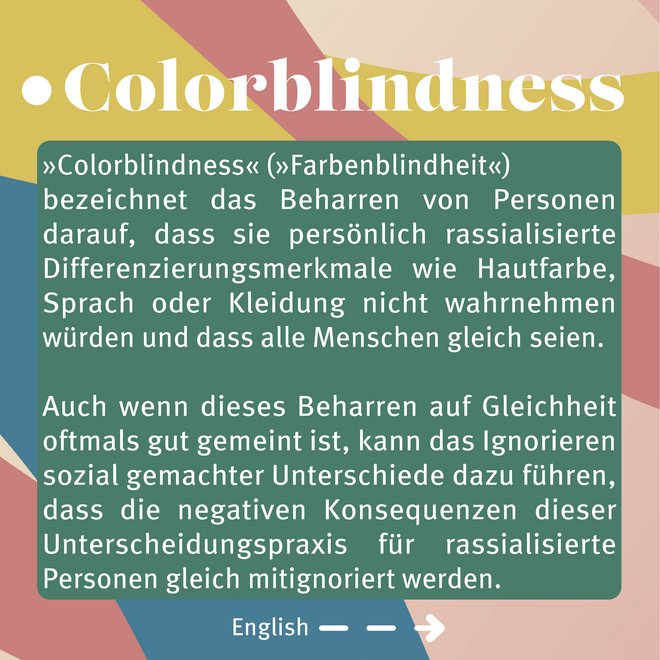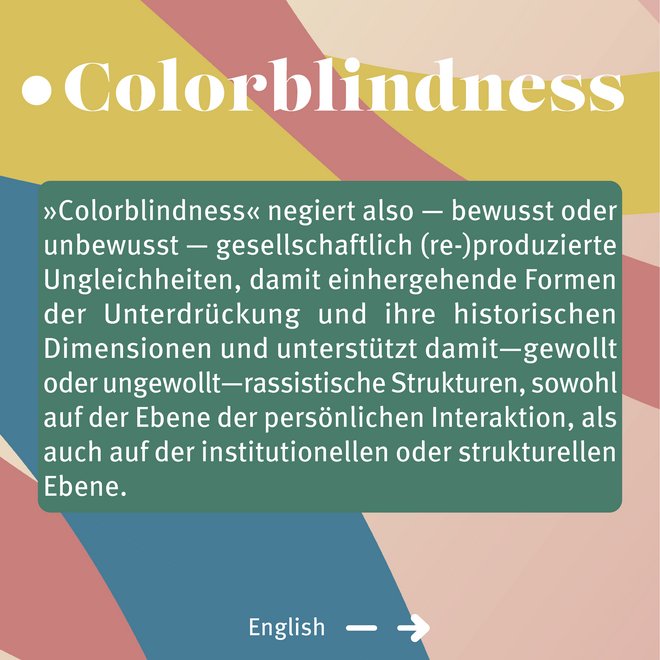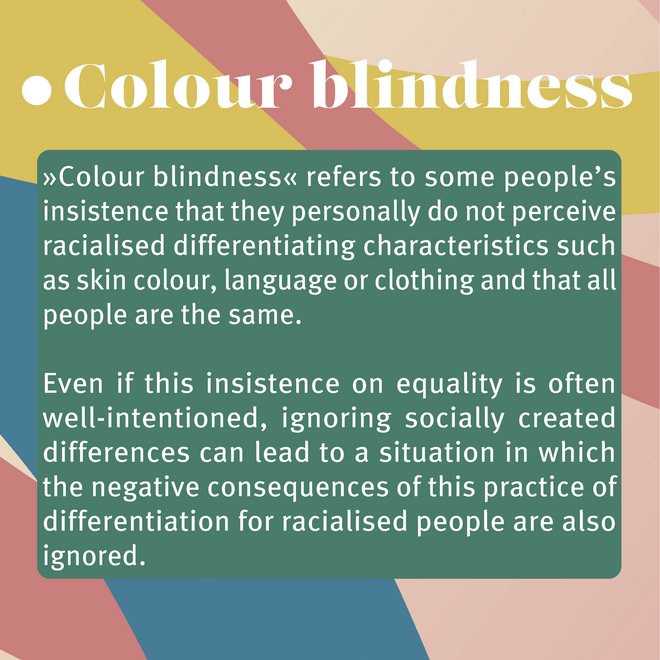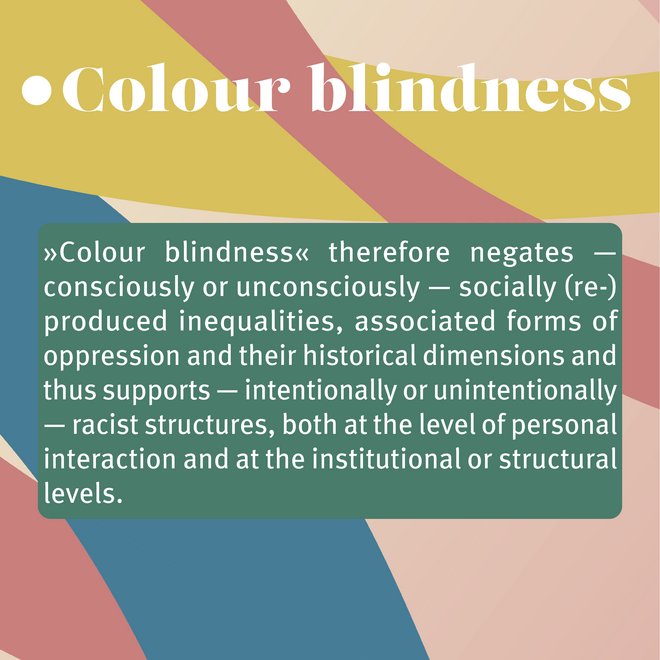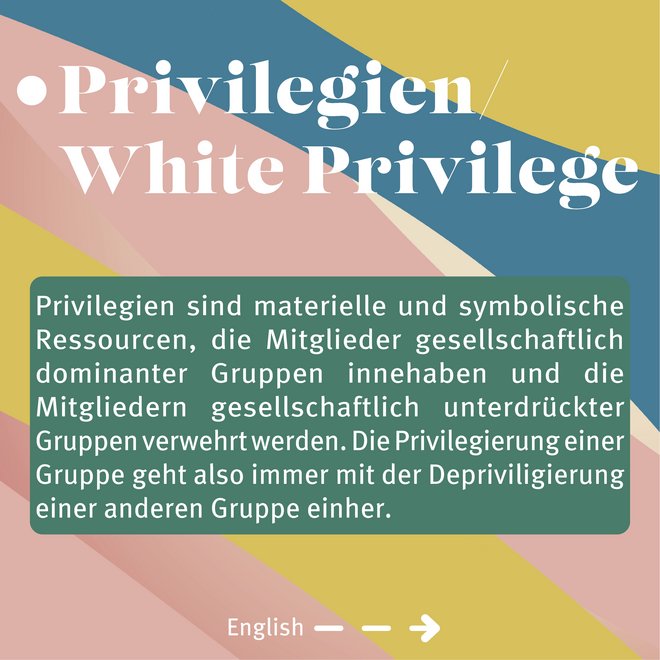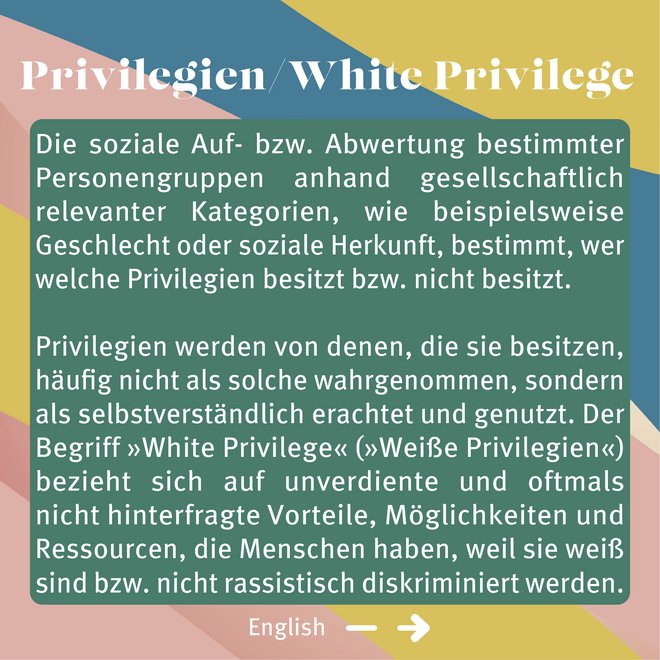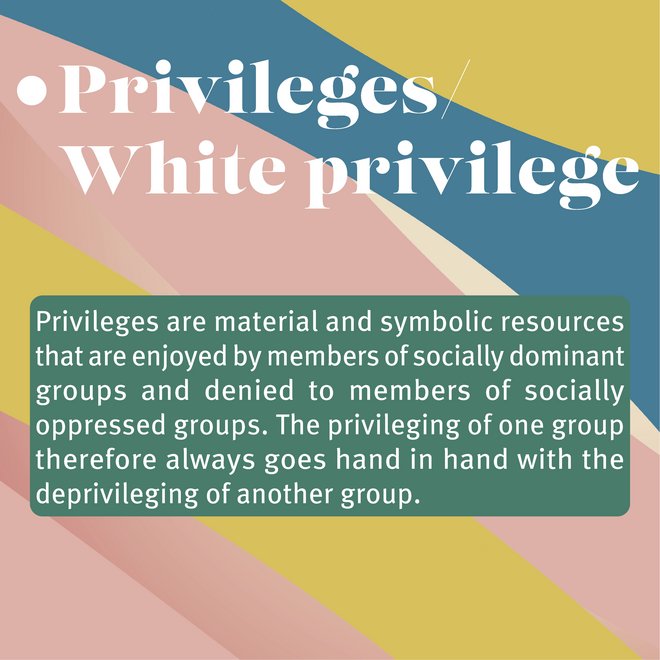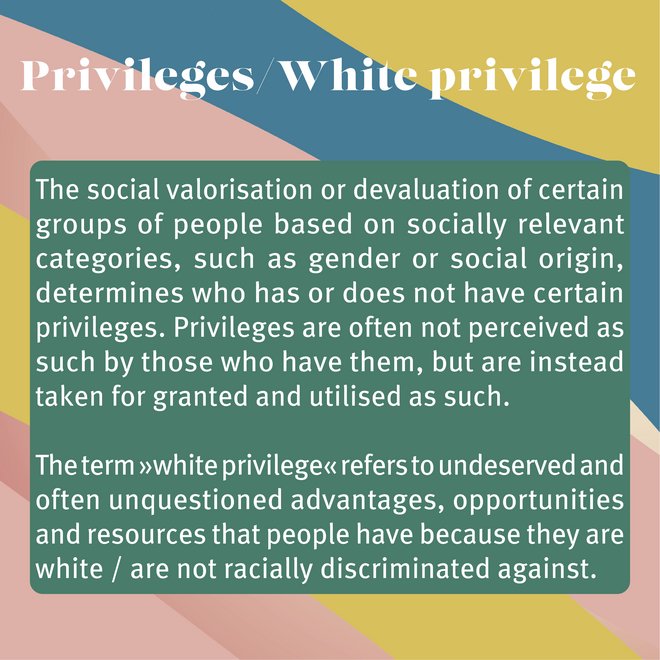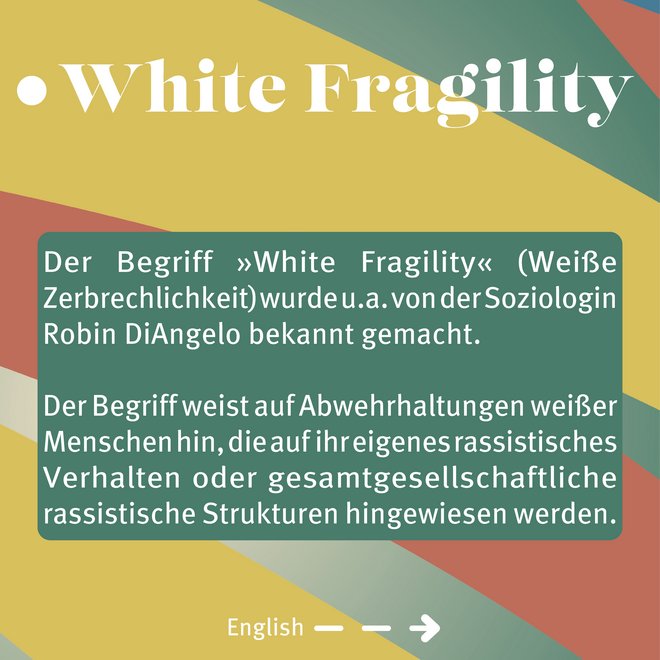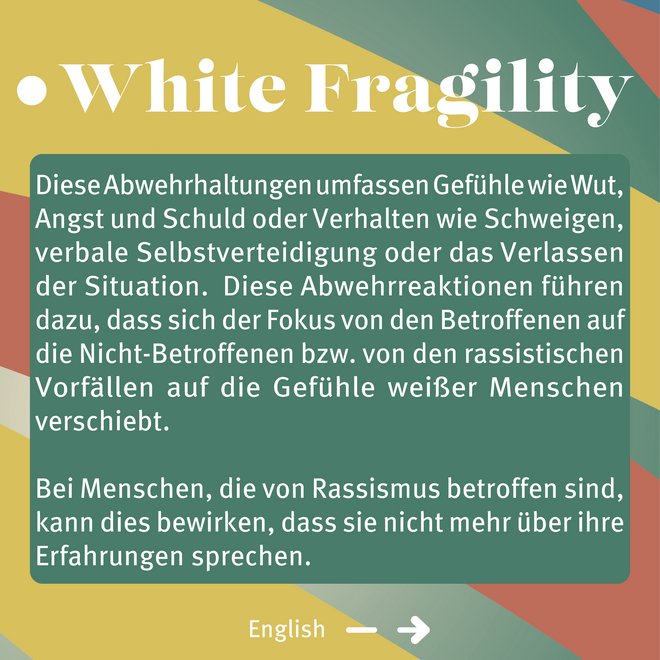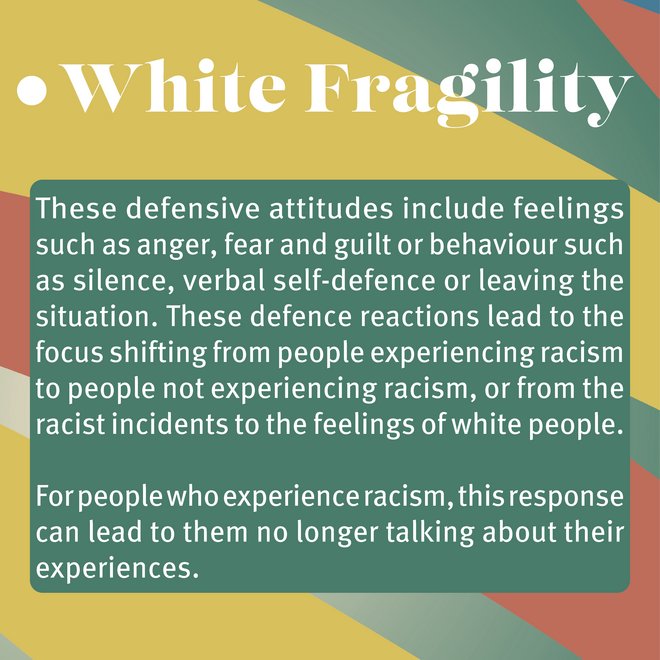Glossary on the topic of racism and anti-racist critique
In 2024, the Diversity Department will focus on the topic of racism, particularly at the university. We are taking the International Day for the Elimination of Racial Discrimination on 21 March as an opportunity to post brief explanations of important terms related to this subject area. You can find more detailed information and tips for further reading on our website. Various workshops, events and films dealing with racism will follow in the course of the year. On the occasion of the International Day for the Elimination of Racial Discrimination, we invite you to a talk and film on the topic of »Antigypsyism« (6:00 PM, Audimax, German with English subtitles).
Racism
Racism is a social practice of differentiation and the valorisation or devaluation of social groups into which people are divided on the basis of actual or ascribed characteristics. This categorisation can be based on criteria such as language, culture or religion. However, it can also be based on physically visible/audible characteristics such as skin colour, language or clothing, while these characteristics are given social significance. Importantly, this categorisation creates hierarchical differences between the groups and serves as social legitimation for the exclusion, discrimination and disadvantage of specific groups and their members. It takes the social power of one group to enforce this practice of categorisation against other, disadvantaged groups. Racism takes place on different levels, e.g. on the individual/interpersonal level, the institutional level or the discursive level.
Racism in the university
Racism is a phenomenon that affects society as a whole and that is also structurally anchored in the university context. It is visible at universities on various levels. It ranges from derogatory or discriminatory remarks in lectures, the cafeteria or other places on campus to a lack of support and understanding for those affected, from a Western and white scientific perspective to a lack of representation of BIPoC, particularly among staff. Racial discrimination can have a strong impact on the physical and mental health of those affected; as a result, it may also negatively impact their study and work performance.
Everyday racism
Everyday racism refers to racist practices that take place on an everyday, interpersonal level. These include derogatory comments, questions, looks, gestures, exclusions and even physical violence. They work individually (»micro-aggressions«), but unfold their full force when they interact and occur repeatedly. Prominent examples are the questioning the »actual« country of origin of a person who is perceived as "foreign" due to racialised characteristics (name, skin colour, etc.), or the special emphasis on their good German language skills. Racist discrimination can be intentional or unintentional. In both cases, it is hurtful. The daily experience of everyday racism often leads to the people affected feeling permanently marginalised or like they do not belong.
BIPoC/Black
The abbreviation »BIPoC« stands for Black, Indigenous, People of Colour. It is a self-designation that originated in the USA. It takes up a formerly racist term used by others and reinterprets it in the course of self-empowerment. The term Black is used in a similar fashion as a political self-designation. The capitalisation refers to the self-empowering aspect. Both concepts emphasise similarities in the experiences of people affected by racist discrimination. As identity-describing as well as identity-creating identifiers, they also support the political self-organisation of people experiencing racism.
Antigypsyism/Antiziganism
Antigypsyism/Antiziganism is a form of racism that is directed against Romani and Sinti persons. Devaluing but also romanticising attributions are used to create otherness and social degradation and reproduce stereotypes. Romani and Sinti persons were persecuted and murdered under National Socialism. Even after 1945, racist thought patterns towards Romani and Sinti people continue to exist and still serve as a basis for discrimination, e.g. in the job or housing markets. As the terms »antiziganism« and »antigypsyism« refer back to the German Z-word and the English G-word respectively — both used as racist slurs for Romani and Sinti persons — these terms are sometimes rejected and replaced by »Gadje racism«. In the sense of self-empowerment, »Gadje« does not refer to members of the racially discriminated group, but to the group from which the racism against Romani and Sinti people originates.
Color blindness
»Colour blindness« refers to some people's insistence that they personally do not perceive racialised differentiating characteristics such as skin colour, language or clothing and that all people are the same. Even if this insistence on equality is often well-intentioned, ignoring socially created differences can lead to a situation in which the negative consequences of this practice of differentiation for racialised people are also ignored. »Colour blindness« therefore negates — consciously or unconsciously — socially (re-)produced inequalities, associated forms of oppression and their historical dimensions and thus supports — intentionally or unintentionally — racist structures, both at the level of personal interaction and at the institutional or structural levels.
Privileges/White privilege
Privileges are material and symbolic resources that are enjoyed by members of socially dominant groups and denied to members of socially oppressed groups. The privileging of one group therefore always goes hand in hand with the deprivileging of another group. The social valorisation or devaluation of certain groups of people based on socially relevant categories, such as gender or social origin, determines who has or does not have certain privileges. Privileges are often not perceived as such by those who have them, but are instead taken for granted and utilised as such. The term »white privilege« refers to undeserved and often unquestioned advantages, opportunities and resources that people have because they are white / are not racially discriminated against.
White fragility
The term »white fragility« was popularised by sociologist Robin DiAngelo, among others. The term refers to the defensive attitudes of white people who are made aware of their own racist behaviour or racist structures in society as a whole. These defensive attitudes include feelings such as anger, fear and guilt or behaviour such as silence, verbal self-defence or leaving the situation. These defence reactions lead to the focus shifting from people experiencing racism to people not experiencing racism, or from the racist incidents to the feelings of white people. For people who experience racism, this response can lead to them no longer talking about their experiences.
Literature tips
More detailed information on the terms can be found in the glossary of the Arbeitspapiers "Denkanstöße für eine rassismuskritische Perspektive auf kommunale Integrationsarbeit in den Kommunalen Integrationszentren – Ein Querschnittsthema" (2019) von V. Kourabas, in: Kommunales Integrationszentrum Münster (Hrsg.), S. 57–71: https://www.stadt-muenster.de/fileadmin/user_upload/stadt-muenster/v_zuwanderung/pdf/Denkanstoesse_fuer_eine_rassismuskritische_Perspektive_finale_Fassung.pdf (german)
Over the course of the year, a list of reading suggestions on the topic of racism will be compiled and made available here; in September, a shelf with selected books on the topic will be set up in the library.

